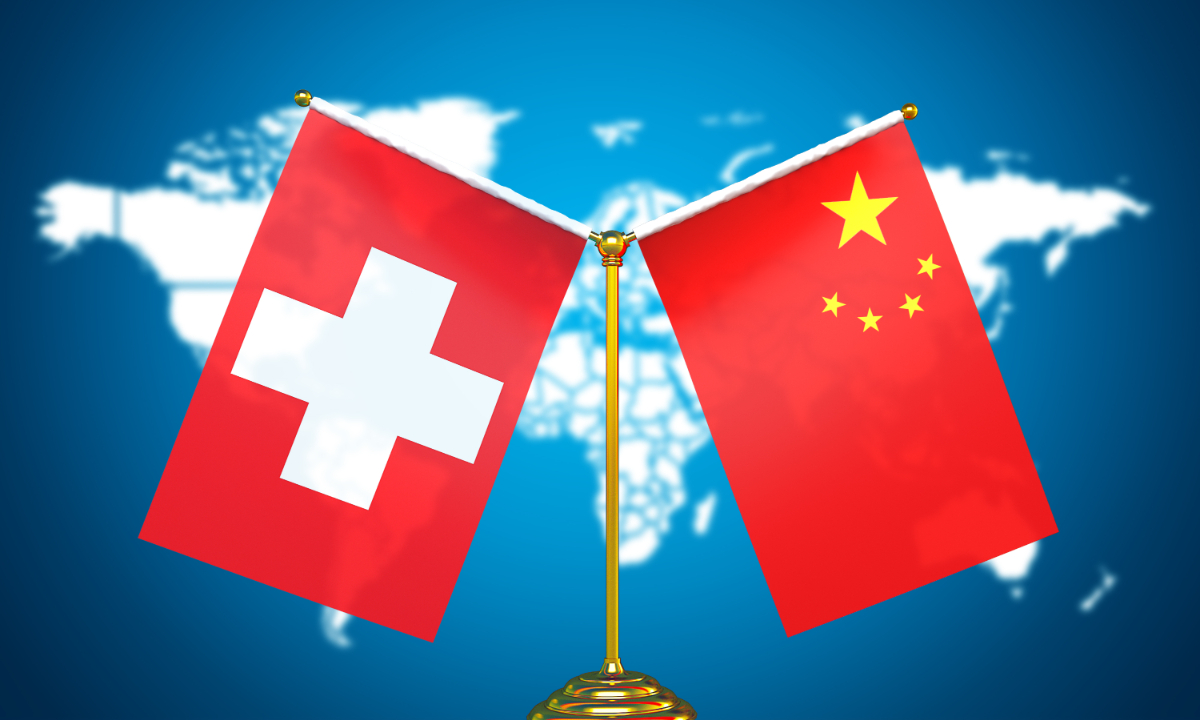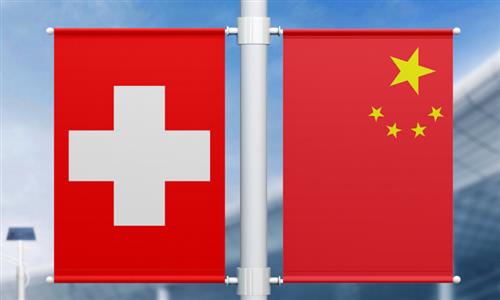China-Switzerland innovative partnership guides world onto correct path amid 'de-risking' hysteria: experts

China and Switzerland Photo: VCG
The third round of the China-Switzerland Foreign Ministers' Strategic Dialogue concluded in Beijing on Wednesday, during which Chinese Foreign Minister Wang Yi told his Swiss counterpart that bilateral relations in the past 74 years since the establishment of diplomatic ties have withstood the test of challenges and maintained steady growth, setting a good example in China's relations with Western countries.
Experts hailed the innovative and steadfast partnership, noting that China-Switzerland ties represent an important force to guide the world onto the correct path of globalization amid rising geopolitical hype and voices about "de-risking" from China.
During the Wednesday dialogue, Wang said the Chinese side is willing to work together with Switzerland to continue promoting the spirit of "daring to be the first" and explore new prospects for bilateral relations.
Swiss Federal Councillor and Foreign Minister Ignazio Cassis said that his country is one of the earliest Western countries to recognize and develop relations with China. The differences between the two do not affect bilateral cooperation, and the relationship between the two remains strong and steady. He reiterated Switzerland's firm adherence to the one-China policy.
Both sides will continue to respect each other's core interests and major concerns, and respect each other's political systems and development paths, according to the Chinese Foreign Ministry press release.
The relationship between China and Switzerland has always been at the forefront of China's relations with Western countries, and the positioning of innovative strategic partners reflects not only the focus and direction of their fields of cooperation but also their commitment to fostering innovation in strengthening ties, Cui Hongjian, a professor with the Academy of Regional and Global Governance at Beijing Foreign Studies University, told the Global Times on Wednesday.
In January, the two countries completed the joint feasibility study on upgrading the bilateral free trade agreement (FTA) when Chinese Premier Li Qiang visited Bern.
During the Wednesday dialogue, the foreign ministers agreed to initiate the upgrade negotiations as soon as possible.
The move could further prompt the European Union to reevaluate its previous freezing of investment deals with China, review its protectionist tendencies and negative politicization currently observed in Europe's relations with China, observers said.
Switzerland was one of the first Western countries to establish diplomatic relations with China and the first European country as well as the first top 20 economy to sign an FTA with China. Under the FTA, which took effect in 2014, 99 percent of Chinese exports to Switzerland and 96 percent of Swiss exports to China enjoy zero tariffs.
The Chinese top diplomat said on Wednesday that he expects Switzerland to provide an open, fair, and non-discriminatory business environment for Chinese enterprises, while Cassis stressed his country's consistent support for free trade and opposition to protectionism.
The two sides agreed to make good use of various cooperation mechanisms to deepen partnership in finance, science and technology innovation, education, intellectual property rights, climate change response, green development and winter sports, among others.
Another major purpose of Cassis' visit, according to local media outlets, is to invite China to a peace conference to address the Ukraine crisis it plans to host this year.
Observers noted that Switzerland is keen to have China at the table considering China's influence in global security affairs. It also hopes to leverage China's participation to persuade Russia to attend.
For China, however, it is unlikely to agree to attend unless both the Ukrainian and Russian sides are there. Otherwise, the forum would lack fairness, they said.



